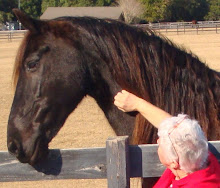We often equate growth with the gradual but steady progression, like the hours of a day progress from midnight to noon to midnight. Developmental authorities have projected a schedule of growth and a timeline to go with it. Elizabeth Kaeton wrote in an email to the Bishops and Deputies of the Episcopal Church's General Convention, "The first is BASIC TRUST vs. BASIC MISTRUST (Hope). This is attained in the period of infancy through the first one or two years. The second is AUTONOMY vs. SHAME (Will) which is attained in the period of about 18 months to 4 years. Without the development of these two milestones, a healthy human being can not go on to mature and attain the other milestones, which include
Initiative vs. Guilt PURPOSE,
Industry vs. Inferiority COMPETENCE,
Identity vs. Identity Diffusion FIDELITY ,
Intimacy vs. Isolation LOVE,
Generativity vs. Self Absorption CARE,
Integrity vs. Despair WISDOM.
Spiritual people have also projected a growth progression for faith. James Fowler wrote in "Stage of Faith" that the dynamics of human development and the dynamics of faith development followed a similar pattern. He posed six stages of faith:
Intuitive-Projective Faith
Mythic-Literal Faith
Synthetic-Conventional Faith
Individuative-Reflective Faith
Conjunctive Faith
Universalizing Faith.
I have always found these theories of development very interesting, especially when I was exactly where I was supposed to be on the charts. And, when I wasn't where I was supposed to be on the charts, I wasn't interested in theories of development anyway.
Very early in life my development from Mistrust to Trust was undermined by an abusive father but sustained by a loving older brother. I didn't make that transition from shame to autonomy until my mother died when I was 50 years old, likewise with Guilt to Initiative. Although I tried many times to escape my mother's pull and be the person I knew I was, I just couldn't do it. Her love and approval were so important to me that I spent my whole life vibrating between doing my own thing and trying to please her. The results were disastrous, needless to say.
Generativity I achieved at an early age also because I had to be productive for our family to survive. After my brother died, I was the one who made decisions and produced income until my mother and sister-in-law could get back on their feet.
I struggled a lot with the other attributes of growth, but I seemed to be able to convey hope and trust to others; those others helped me along the way as I took a few steps forward and then was dragged back into a previous stage by something that happened. That's usually what happens when we say that someone has "pushed our buttons"; we've reverted to a prior stage of growth that we have to learn all over again.
Faith, I think, is much the same way. We amble along with God and seem to be doing just fine until suddenly we're confronted with ideas that are different from ours, ideas that make sense, ideas that others believe passionately; then we wonder and puzzle and shift what we think we believe on a daily, if not hourly, basis.
We can be accepting and honor other people's religious beliefs until they come into conflict with our own comfort and well-being. Then we revert to a conventional faith that says everyone should believe just as I believe. We go for long times in that reverted faith before we become accepting again; and that reversion can apply to others besides those with whom we are in conflict.
So, my experience is that human development (mine anyway) and faith development are not simple progressions from one stage to another. These are human constructs like time is a human construct, and they don't always fit. Under certain conditions, time does indeed stand still or seem to go backwards. Our lives are like that. I suffer mistrust, guilt, shame, apathy, along side creativity, wisdom and hope.
The way I see these guides to development is as identifying points for times when we feel something isn't just right. We can look at what has happened, examine our feelings, shake out our beliefs, talk to others and decide if we need to grow a little more or if everything is really okay and the past is just pushing us a bit.
No one grows in such an orderly fashion, and that's what keeps life interesting.
Sunday, May 28, 2006
Subscribe to:
Post Comments (Atom)

No comments:
Post a Comment